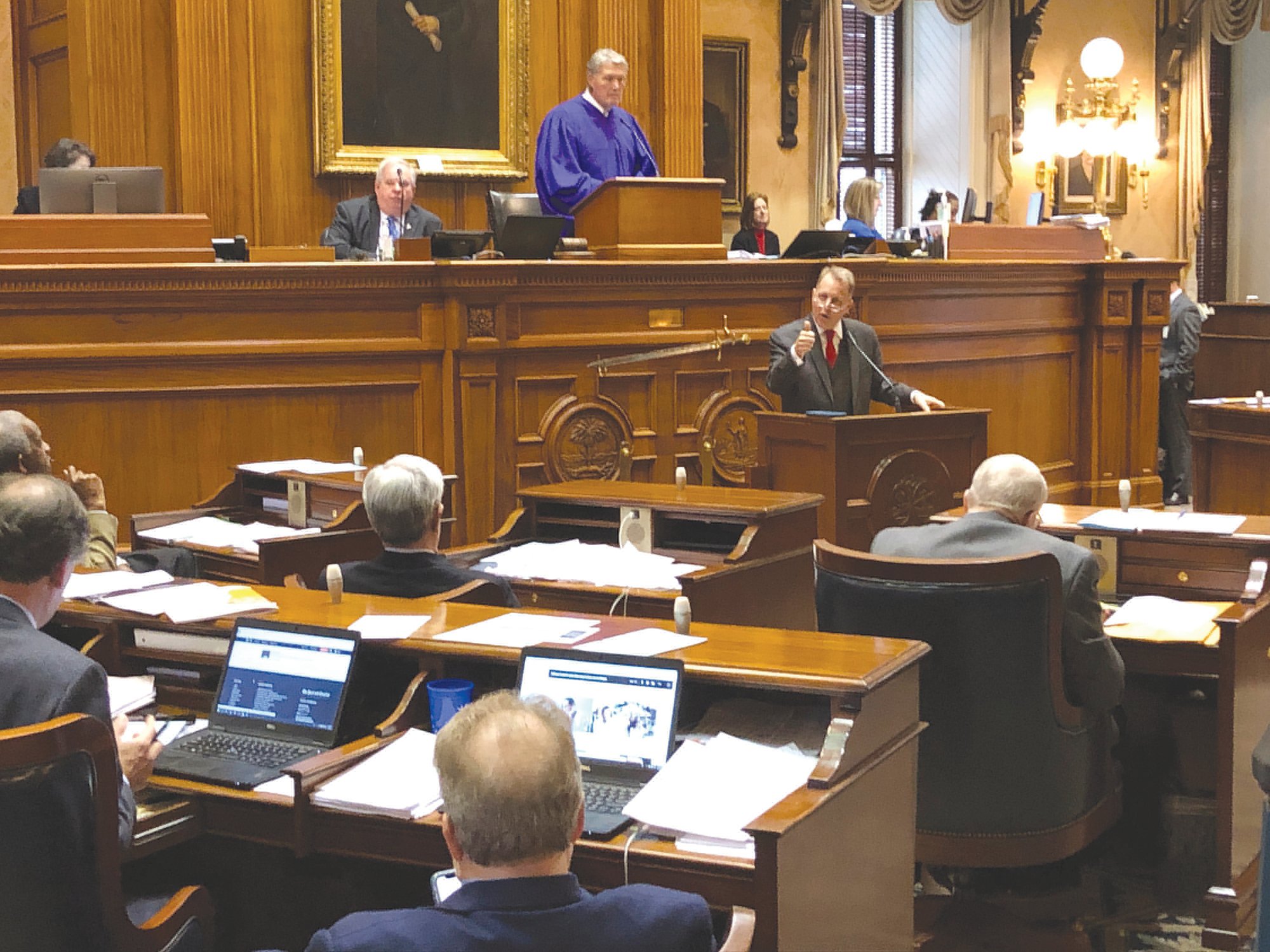New 2021 General Assembly session opens in Columbia; extra security posted at Statehouse after riots in Washington, D.C.
The Associated Press
COLUMBIA - The South Carolina General Assembly opened up its 2021 session Tuesday promising to not let COVID-19 stop their work and with the largest Republican Senate majority in modern times changing rules that could limit lengthy debates.
It was a much different opening day. There were lawmakers in masks - although not all of them - and elbow taps and fist bumps replaced hugs and handshakes. There was extra security in fatigues and uniforms, supplementing the typical Statehouse security in suits after last week's violence when a mob breached the U.S. Capitol in Washington.
The Senate welcomed six new members to the 46-seat chamber. Three of them are Republicans who replaced Democrats. They didn't change leadership, electing Republican Harvey Peeler of Gaffney as the Senate President after he was nominated and seconded by the leader of each party.
Peeler first took the role two years ago when voters approved a constitutional amendment taking the lieutenant governor out of the role of presiding over the body.
Peeler is requiring all senators and staff to wear masks in the Legislature, where nearly half the members are over age 60. But in his opening speech, he told senators they would not stop meeting. The coronavirus outbreak in 2020 meant the Senate only met briefly for the most urgent of issues after mid-March.
"We have a duty from our constituents to show up for work because we have a lot to accomplish this year," Peeler said. "This session will be unlike any other."
While the extra security was noticeable, lawmakers said they weren't worried even with the FBI telling state and local police they had threats of armed protests and possible violence at capitols in all 50 states. They credited plans developed after fiery protests in 2015 about the Confederate flag for fixing any weaknesses in guarding the Statehouse, its grounds and legislative buildings.
"We're inviting people to use the grounds of the Statehouse as they have in the past, for peaceful protests," said Senate Minority Leader Brad Hutto, D-Orangeburg.
The House met in an organizational session in December, meaning they did little Tuesday but say hello, meet for a few minutes and then adjourn, allowing House Speaker Jay Lucas and Speaker Pro Tem Tommy Pope to read the 500 bills introduced at the start of the session to an empty chamber.
Outside of Hutto's election as Minority Leader, most of the Senate's leadership remains the same.
Republican Sen. Shane Massey of Edgefield was reelected Senate Majority leader. "I think the state needs leadership, and I have something to offer," Massey said.
The new, larger Republican majority did change some Senate rules. The biggest one was to make it easier to force a bill to come to a vote.
The new cloture rules allow senators to limit amendments, or changes to the bill, as part of their motion to limit debate. Under the old rules, any amendment filed before debate was closed had to be considered. Sen. Mike Fanning had 194 amendments on an education bill last year, meaning if he took his full 10 minutes to talk about each one, he would have spoken more than 32 hours.
"Yes, this is reactionary," Massey said.
The new rules also require a more than majority vote for final passage of a bill after debate has been limited.
Hutto acknowledged his 16 Democrats could do little to change Republican minds on the rules in the 46-member chamber and he told Republicans he trusted their good faith offer to use the new rules sparingly and continue the state Senate's tradition of robust, through debate.
"I hope you would respect our ability to offer our differences," Hutto said.
Actual business was limited Tuesday as bills had to be introduced and committees have not started their work. But just being in the chamber shows that the business of the state operates despite a COVID-19 pandemic that has seen record number of cases in the past few weeks and more than 5,300 deaths.
"We're operating to send a sense of normalcy back home. If teachers can teach, if police can police, then legislators can legislate," said state Sen. Gerald Malloy, D-Hartsville.
More Articles to Read

